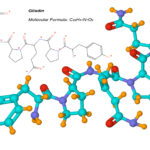By Annette Pinder
The World Health Organization’s (WHO) International Agency for Research on Cancer (IARC) says aspartame is a possible carcinogen to humans. According to IARC, a recent study found that men who consume aspartame displayed a greater risk of developing non-Hodgkin’s lymphoma and multiple myeloma.
IARC hopes to reduce or eliminate people’s consumption of aspartame products, noting that this is particularly important during pregnancy, for the proper development of the fetus and the health of the mother. Previous clinical studies confirmed that consuming aspartame during pregnancy may increase the risk of preterm delivery and allergic diseases in the fetus. In vivo studies also demonstrated that aspartame caused other problems during pregnancy, including glucose and insulin tolerance, altered intestinal microbiota, greater weight gain, increased risk of type 2 diabetes, cardiovascular disease, nonalcoholic fatty liver disease, and hormone-related cancers in the infant.
Aspartame exposure may also cause neurological and behavioral disorders and neuropsychiatric reactions such as headache, convulsions, and depression. This is primarily due to the metabolism of aspartame, which increases production of phenylalanine, aspartic acid, and methanol, which can cross the blood brain barrier and directly interact with neurotransmitters. Aspartame’s interactions with the gut microbiota may also cause long-term behavioral changes and increase release of corticosterone and adrenocorticotropic hormone (ACTH) produced by the pituitary gland. Cortisol production affects nearly every organ and tissue in the body, helping to reduce inflammation, regulate blood sugar, and metabolism.
Since IARC’s results were based on limited evidence from three observational studies, further studies are recommended. However, Dr. Francesco Branca, WHO’s director of Department and Nutrition Safety, says people who consume high amounts of aspartame should consider switching to water or other unsweetened drinks.












